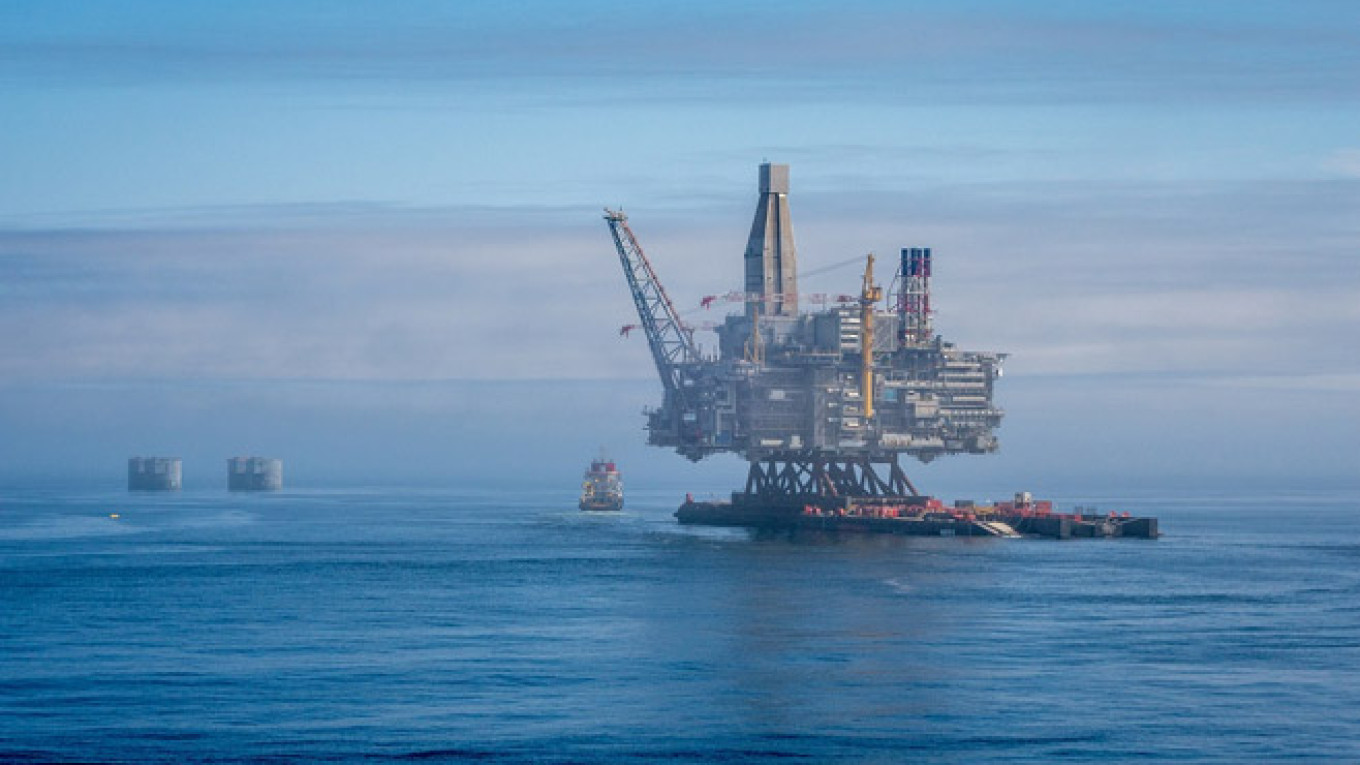While the EU's harshest sanctions against Russia to date do target major sectors of the Russian economy, great care has been taken to avoid damaging the energy industry, where Europe is loath to disrupt supplies of vital Russian gas.
Late on Tuesday, the Council of the European Union published an agreement on sanctions aimed at pressuring Russia into ceasing its alleged support for separatist rebels in eastern Ukraine. A finalized list of sanctions is due to be published Thursday and to go into force on Friday.
One of the most anticipated measures is a ban on the sale of energy-related equipment and technology to Russia. Being highly dependent on Western supplies, the energy sector would have suffered a painful blow were such sanctions applied at maximum force.
But industry experts on Wednesday doubted that the sanctions the EU has agreed on can inflict immediate damage to the Russian energy sector.
"While sanctions would hurt both Russian companies and their international partners, they do not apply to ongoing projects," Investcafe analyst Grigory Birg said. "They could have an effect in the long run, but that would take years, because the current projects first have to come to completion," he said. The threat may even be fully negated, he added, as the EU has agreed to review the sanctions in three months time.
The need to find a substitute for energy equipment imports is high on the Russian government's list of priorities in the wake of earlier waves of Western sanctions. In June, President Vladimir Putin held a meeting devoted to the subject at which Energy Minister Alexander Novak presented alarming figures: According to his ministry, about a quarter of all oil and gas equipment used in Russia comes from abroad, and shelf development projects are almost 100 percent reliant on foreign equipment for which there is no viable domestic alternative.
The threat of supply disruptions, however, seems not to be as dire as expected. Although the EU could have imposed sanctions on both the oil and gas sectors, the agreed parameters will touch only oil production in hard-to-reach areas.
The EU likely avoided sanctioning the gas industry for fear of disturbing its own gas supplies, a third of which come from Russia, Birg said.
"While oil is a market commodity, gas is delivered under contract agreements, and as a consequence of sanctions Gazprom could have raised prices for its European customers," he said.
According to the EU Council's statement, export licenses will be denied if products are destined for deep water oil exploration and production, Arctic oil exploration and production or shale oil projects in Russia.
While the impending sanctions are limited, they target one of the industry's most promising sectors. Shale oil development has become a growing trend globally as conventional reserves are gradually depleted. A BP forecast released earlier this year suggested that in 20 years Russia would become the world's largest producer of 'tight oil,' or petroleum extracted from shale and other rock formations.
Projects in tight oil are dominated by state oil giant Rosneft, as are projects on the Arctic shelf, where Rosneft is busily pursuing projects with U.S. oil giant ExxonMobil, Norway's Statoil and Italy's Eni. The oil subsidiary of gas giant Gazprom, Gazprom Neft, and privately owned LUKoil are also involved in shelf and shale oil development.
Rosneft, Gazprom Neft and LUKoil did not provide immediate comment on how they may be impacted by the impending sanctions. The Energy Ministry declined to comment until full details on the sanctions are presented to the public.
Andrei Polischuk, an oil and gas analyst at Raiffeisen Bank, said the sanctions could inflict serious damage if they were applied to the entire energy sector, rather than just the oil industry, and if they included enforcement measures.
"What would keep Rosneft, for example, from asking its partner CNPC [China's state-owned petroleum corporation] to buy some Western-made equipment and then ship it to Russia? Besides, what is the difference between drilling for oil or gas? Exploration is usually done for both," Polischuk said. In his view, companies will be able to continue exploration on the Arctic shelf even with oil sector sanctions in place.
This means that sanctions would not, for instance, prevent the world's largest oil drilling platform Berkut, which Rosneft launched in the Okhotsk Sea at the end of June, from pumping oil until its service life expires in 30 years or the reserves dry up.
See also:
VTB, Bank of Moscow, Rosselkhozbank Brush Off Sanctions
Contact the author at [email protected]
A Message from The Moscow Times:
Dear readers,
We are facing unprecedented challenges. Russia's Prosecutor General's Office has designated The Moscow Times as an "undesirable" organization, criminalizing our work and putting our staff at risk of prosecution. This follows our earlier unjust labeling as a "foreign agent."
These actions are direct attempts to silence independent journalism in Russia. The authorities claim our work "discredits the decisions of the Russian leadership." We see things differently: we strive to provide accurate, unbiased reporting on Russia.
We, the journalists of The Moscow Times, refuse to be silenced. But to continue our work, we need your help.
Your support, no matter how small, makes a world of difference. If you can, please support us monthly starting from just $2. It's quick to set up, and every contribution makes a significant impact.
By supporting The Moscow Times, you're defending open, independent journalism in the face of repression. Thank you for standing with us.
Remind me later.


